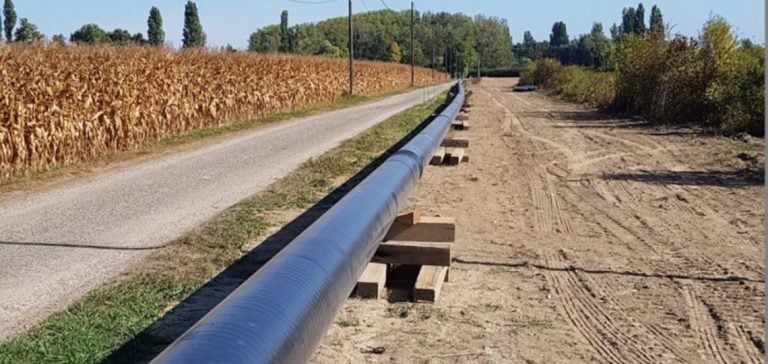Qair and Trapil, two major players in the energy and power transmission sectors, seal a partnership to develop the distribution of electromolecules such as hydrogen and ammonia.
This type of agreement between a renewable energy producer and a pipeline network operator is essential to meet the decarbonization objectives of the industrial and transport sectors.
By joining forces, Qair and Trapil aim to bridge the gap between production and distribution of these molecules, which are vital to the energy transition.
Demand for low-carbon transport solutions, particularly in the air and sea transport industries, is growing.
European and international regulations are tightening greenhouse gas emission reduction targets, creating an opportunity for electromolecules to flourish as an alternative to fossil fuels.
It is in this context that Qair has positioned itself as a producer and Trapil as a distributor.
A strategic distribution network
Trapil’s pipeline network, historically focused on the transport of refined petroleum products, is a major asset in this collaboration.
The network connects key hubs in France, including the ports of Le Havre, Rouen and Paris, as well as the airports of Paris-Charles de Gaulle and Paris-Orly, creating an optimal logistics network for the distribution of electromolecules.
The ambition is to extend these infrastructures to meet the future transport needs of these new molecules.
As a producer of renewable energy, Qair is developing projects in several parts of the world, including France, Brazil and Iceland.
In France, the company is building the world’s largest renewable hydrogen production unit.
Strategic partnerships, such as the one with Airbus, aim to produce sustainable fuels (e-saf) for the aeronautical industry, particularly in the Occitanie region.
The Seine axis, a strategic corridor, is also at the heart of these initiatives, with a project to produce sustainable fuels for the region’s ports.
Value chain optimization
This cooperation aims to optimize the entire electromolecules value chain, from production to distribution.
By combining Qair’s production capacity with Trapil’s infrastructure, the two companies aim to provide complete solutions for their European customers.
This approach secures logistics and enables them to offer competitive products in a market where demand is growing rapidly.
Electromolecules, and hydrogen in particular, are increasingly seen as a response to the decarbonization of heavy industry and transport.
Their distribution relies on an infrastructure capable of handling large volumes while maintaining high safety standards.
This is where Trapil’s expertise in transporting energy liquids comes into play, ensuring efficient distribution of electromolecules across strategic energy corridors.
An international challenge
Beyond France, this partnership has international ambitions.
Qair, with its renewable assets in several regions of the world, is looking to offer decarbonization solutions to its customers in Europe, but also in South America, where Brazil is positioned as a key market.
The aim is to export these electromolecules to markets in the midst of an energy transition, thus strengthening the international footprint of this cooperation.
Trapil, for its part, is drawing on its expertise in the development and management of international pipelines to support these ambitions.
Cross-border transport of electromolecules is a major logistical challenge, requiring robust and reliable infrastructures.
By working with Qair, Trapil is positioning itself as a key player in the distribution of new energies, bringing its know-how in managing the flow of liquid energy over long distances.
A response to the challenges of the energy transition
The agreement between Qair and Trapil meets a growing demand for low-carbon energy solutions.
As public policies and environmental regulations tighten, demand for alternatives to fossil fuels in industrial, air and sea transport continues to grow.
Hydrogen and sustainable fuels such as e-saf are seen as promising solutions for reducing the carbon footprint of these sectors.
By combining production and distribution efforts, the two companies aim to reduce the costs associated with the logistics of electromolecules while increasing their availability.
This optimization of the supply chain is crucial to ensuring that electromolecules remain competitive with traditional fuels.






















